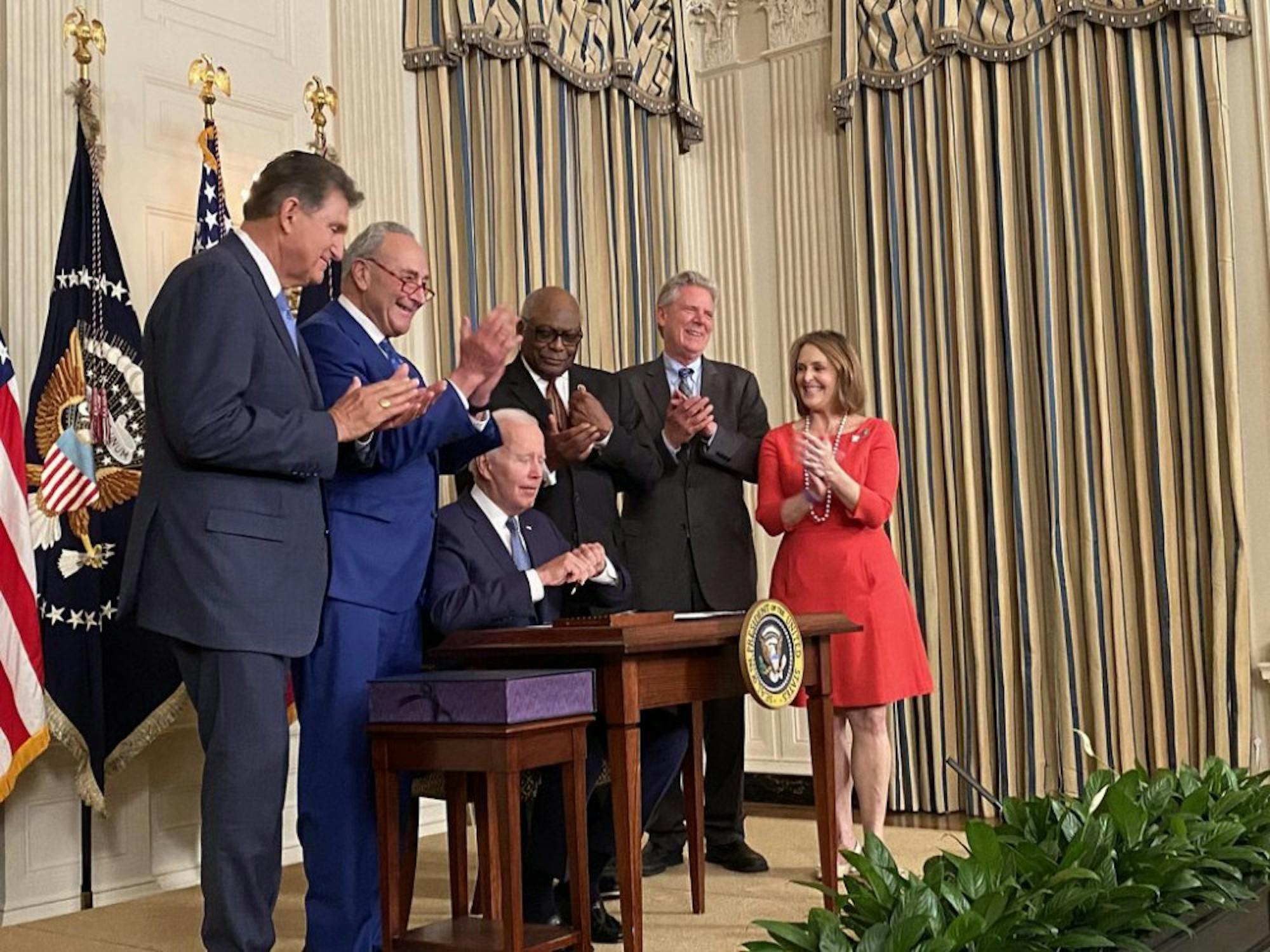
President Joe Biden recently signed the Inflation Reduction Act of 2022, voted on by the Senate down party lines and backed heavily last minute by centrist Senator Joe Manchin (D-W.Va.). The bill focuses largely on funding for climate change reduction, lowering healthcare costs and increasing minimum taxes on corporations. In contrast to the critics' rebukes of the legislation — calling it irresponsible spending on the right and too moderate on the left — the bill is timely and necessary. While I hesitate to claim that those who are both frustrated with inflation and oppose increases in taxes are voting against their self-interest, self-proclaimed economic conservatives’ consistent support of radical decreases in taxes should be surprising. When pro-business, free market advocates so fiercely oppose helpful corporate taxes, they put politics over impact.
When economies are deflated, Keynesian economics tells governments to lower taxes and incentivize spending, allowing the market to reinvigorate itself through consumer mobility. The exact opposite is true of an inflated economy, teaching that methods of limiting overspending are essential to market calming, from raised interest rates to taxes. Keynesian theory is a great prototype to look to in times of economic distress. Addressing market issues with counter-spending has worked in the past, and in comparison to the theory that markets ebb and flow freely, allows for much more governmental intervention.
Although improvements might not be seen in the short term, Manchin has found money to both deflate a ready-to-burst economy and provide significant improvements in spaces where the U.S. has notoriously fallen short. Although Republican critics may question the merits of excess government spending during a time of inflation, Manchin was able to put money towards social fixes while pulling money out of the economy.
Manchin’s bill will slow the damage of inflation by increasing taxes on the top 1%. However, the fastest way to decrease inflation would be by restricting the spending power of average people: increasing taxes across the board. This move would be impossibly unpopular, but the policy would ultimately lead to improvements in all areas where inflation was damaging. Most notoriously, in rising gas prices.
The critics may be correct; from Senator Bernie Sanders (I-Vt.) to Senator Mitch McConnell (R-Ky.), many have rebuked the bill for its minimal potential impact on battling inflation. To Sanders’ point, this lack of effect is a result of a moderation in tax increases, not the other way around. If lowering taxes and pouring money into the economy will pull the country out of a crash, then raising them will naturally counteract inflation. Even if the bill fails to actively improve out-of-control inflation, the legislative action to stave off a recession could have another effect: maintained confidence in a cautiously balanced economy. Because of these effects, businesses, jobs and the stock market, all significantly backed by traditional conservative policy will be kept together, at least in the short term. If the goal is to safely avoid recession, significant work must be done by both parties.
There is no single definition of a recession. The accepted definition is two consecutive quarters of decreased GDP, which has already happened this year. But this economic moment is different than in the past. Recessions often occur when a market fails, causing the stock market to crash. The crash decreases liquid capital for large corporations, leading to widespread layoffs and a lack of money circulating in the economy. 2022 is different —Americans are still largely employed. Therefore, if government action can delay corporate layoffs until the economy readjusts to arguably irresponsible COVID-19 spending between 2019 and 2022, we may avoid a crisis altogether.
Manchin is a smart guy. He found hundreds of billions of dollars to address real issues in perhaps the only time where the money would be available for years. By taxing those who have thrived through the stock market boom following the COVID recovery, the vast distance compared to those who saw disastrous losses during the pandemic can be mitigated in years and even decades to come. Inflation, climate change and healthcare issues affect low income citizens most, and Democrats have managed to find a way to aid all three issues with one presidential signature. Even with the imperfections, their decision to fall back on ironclad economics in a time of polarization will succeed in the long run.
Ben Brodsky (25C) is from Scottsdale, Arizona.





